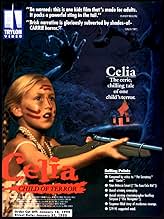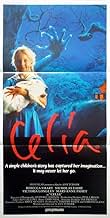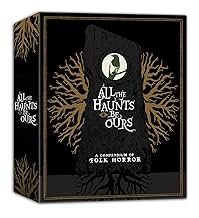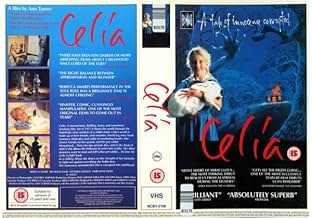IMDb RATING
6.8/10
1.7K
YOUR RATING
An imaginative and somewhat disturbed young girl fantasizes about evil creatures and other oddities to mask her insecurities while growing up in rural Australia.An imaginative and somewhat disturbed young girl fantasizes about evil creatures and other oddities to mask her insecurities while growing up in rural Australia.An imaginative and somewhat disturbed young girl fantasizes about evil creatures and other oddities to mask her insecurities while growing up in rural Australia.
- Awards
- 2 wins & 2 nominations total
- Director
- Writer
- All cast & crew
- Production, box office & more at IMDbPro
Featured reviews
In summer, 2003, I took a class about Australian cinema. We watched films like "Walkabout", "Gallipoli" and "Rabbit-Proof Fence"; it might have thrown a wrench in the works had we watched "Celia". At the video/DVD store, I found it under the horror section, but it's only a horror flick in the loosest terms. The movie deals with a nine-year-old girl (Rebecca Smart) in 1950s Australia whose amorality and alienation from society drive her to complete madness; I think that that was the plot. Certainly it's ugly what Celia does, but seeing what the adults around her are like, I felt that I had no choice except to root for Celia.
The historical context involves the Cold War and the government's efforts to stop the rabbit infestation. As people tell Celia not to fraternize with children of communists, she grows more and more disenchanted with the world around her - after all, friends are supposed to be friends no matter what the parents' political activity. But when a cop takes away her pet rabbit, she really gets nasty (it also shows that the rabbit-proof fence that lent its name to the 2002 movie clearly didn't work in holding back the leporid plague).
So how to interpret this movie? It looks at face value like one of the many instances of a seemingly cute girl having a not so cute side (think "The Bad Seed"). One might say that the rabbits play a role similar to the ones in "Night of the Lepus" and "Donnie Darko", even though Celia's rabbit doesn't do anything. I guess that it's worth seeing, if only once.
The historical context involves the Cold War and the government's efforts to stop the rabbit infestation. As people tell Celia not to fraternize with children of communists, she grows more and more disenchanted with the world around her - after all, friends are supposed to be friends no matter what the parents' political activity. But when a cop takes away her pet rabbit, she really gets nasty (it also shows that the rabbit-proof fence that lent its name to the 2002 movie clearly didn't work in holding back the leporid plague).
So how to interpret this movie? It looks at face value like one of the many instances of a seemingly cute girl having a not so cute side (think "The Bad Seed"). One might say that the rabbits play a role similar to the ones in "Night of the Lepus" and "Donnie Darko", even though Celia's rabbit doesn't do anything. I guess that it's worth seeing, if only once.
A very strange film that has been included in the, All the Haunts be Ours, compendium of 'folk horror' which is really what this is. There is and plenty that looks like a children film but it clearly is not that right and even at the early there are moments of 'horror'. I understand that in the video store people wanted to make clear that 'children' should not be allowed and then if as people are hope it will be gore and sex and maybe vampires, there is another problem. So lets just face this that children are in the film and realise that they do not always see the way we always do. The child, Celia is most imaginative and can influence other children and this can make it difficult for them. The film also has the killing rabbits, the communists, cruel parents and police men and school teachers who can be even more so.
It is with a heavy heart that I note Celia, possibly my favourite film, is now being marketed with a tacky subtitle. This film is comparable to Jane Campion's work and is anything but a straight horror film, with a subtle characterisation and a compassionate yet unsentimental picture of childhood not generally associated with that genre. The narrative viewpoint is well sustained, with the grownup world of barbecues, blacklists, and affairs observed from a child's angle. The horror in question is in Celia's imagination, which, like that of all children, plays out the stresses of her own family and her culture. Various plagues - literal and metaphoric - impinge on her world, from myxomatosis to communism. Fans of blood and gore will be disappointed. The film is an unhurried portrait of 50s Australia, the pressure to conform, childhood, death. Its climax is sharp and bloody but logical; as is the lightness of the ending. As a touchstone, think of the daughter in the Piano, with her outrageous storybook lies, her spontaneity, her hurt rebellion, and her ultimate childishness. Just don't think Carrie. This is gem of a film, and let's face it, Hollywood churns out a lot of disappointing ones. As soon as you see the opening titles with Rebecca Smart's expressive face glancing all around her, while the theme music plays, you'll realise you're in the hands of a very talented director.
Celia is a spirited 9 year old girl with a vivid imagination.
Reeling from the death of her beloved grandmother, she seeks out the company of her new neighbours, The Tanners - a warm and loving family harbouring a secret.
Set in an Australian suburb in the late 1950's, the film tackles the prevailing social issues of the time including the "red scare" and the "rabbit pestilence", drawing a parallel between the two.
The film is essentially a drama, but with an added element of dark fantasy (which, although an interesting idea, is used inconsistently and often feels out of place).
But as a coming of age story, Celia is a triumph - an honest and unvarnished exploration of the trials and tribulations of childhood, featuring an astonishing performance by Rebecca Smart in the titular role.
Reeling from the death of her beloved grandmother, she seeks out the company of her new neighbours, The Tanners - a warm and loving family harbouring a secret.
Set in an Australian suburb in the late 1950's, the film tackles the prevailing social issues of the time including the "red scare" and the "rabbit pestilence", drawing a parallel between the two.
The film is essentially a drama, but with an added element of dark fantasy (which, although an interesting idea, is used inconsistently and often feels out of place).
But as a coming of age story, Celia is a triumph - an honest and unvarnished exploration of the trials and tribulations of childhood, featuring an astonishing performance by Rebecca Smart in the titular role.
"Celia" follows the title character, a young girl growing up on the outskirts of 1950s Melbourne during the "Red Scare." After her beloved grandmother's death, Celia, prone to fantasies and possessing an extreme imagination, begins to imagine the tumultuous world around her as plagued by fairytale monsters, inadvertently leading her toward tragic events.
This little-seen fantasy horror film from Australia was largely missed by audiences when first released, though it is due for some reevaluation. Writer-director Ann Turner offers here a vivid portrait of childhood loneliness that illustrates the ways in which serious matters of the "adult" world (here, Turner focuses largely on political turmoil) impact the psyche of impressionable youth.
The lead character is brilliantly portrayed by the young Rebecca Smart, and the film is underpinned by strong performances from the entire cast. In some ways, it recalls the dreamy nightmare world of something like "Lemora" or "Valerie and Her Week of Wonders," and in others, functions as a precursor to Peter Jackson's "Heavenly Creatures"--though in this case, it is an even younger child whose loose grip on reality hurls her toward oblivion. Despite the serious implications and consequences at hand, the film still manages to retain some lightness to it that makes it highly watchable, and, though often been classified as a horror film, it really plays more like a dark fantasy with tinges of the macabre.
The one downfall is that the film's conclusion does feel slightly irresolute given the established gravity of the situation, but "Celia" remains a stolid, effective portrait of a child whose alienation from the world around her is drawn in a way that adults can empathize with. After all, we were all children once, right? 9/10.
This little-seen fantasy horror film from Australia was largely missed by audiences when first released, though it is due for some reevaluation. Writer-director Ann Turner offers here a vivid portrait of childhood loneliness that illustrates the ways in which serious matters of the "adult" world (here, Turner focuses largely on political turmoil) impact the psyche of impressionable youth.
The lead character is brilliantly portrayed by the young Rebecca Smart, and the film is underpinned by strong performances from the entire cast. In some ways, it recalls the dreamy nightmare world of something like "Lemora" or "Valerie and Her Week of Wonders," and in others, functions as a precursor to Peter Jackson's "Heavenly Creatures"--though in this case, it is an even younger child whose loose grip on reality hurls her toward oblivion. Despite the serious implications and consequences at hand, the film still manages to retain some lightness to it that makes it highly watchable, and, though often been classified as a horror film, it really plays more like a dark fantasy with tinges of the macabre.
The one downfall is that the film's conclusion does feel slightly irresolute given the established gravity of the situation, but "Celia" remains a stolid, effective portrait of a child whose alienation from the world around her is drawn in a way that adults can empathize with. After all, we were all children once, right? 9/10.
Did you know
- TriviaThe fairy tale from which extracts were recited in the film was The Hobyahs by James H. Fassett and Robert D. San Souci.
- GoofsThe burn mark on Celia's rabbit is missing at the fishing docks.
- ConnectionsFeatured in Film Review and Interview with Ann Turner from the 'Sunday' Show (1989)
- How long is Celia?Powered by Alexa
Details
- Release date
- Country of origin
- Official sites
- Language
- Also known as
- Celia: Child of Terror
- Filming locations
- Production company
- See more company credits at IMDbPro
- Runtime
- 1h 42m(102 min)
- Sound mix
- Aspect ratio
- 1.85 : 1
Contribute to this page
Suggest an edit or add missing content












